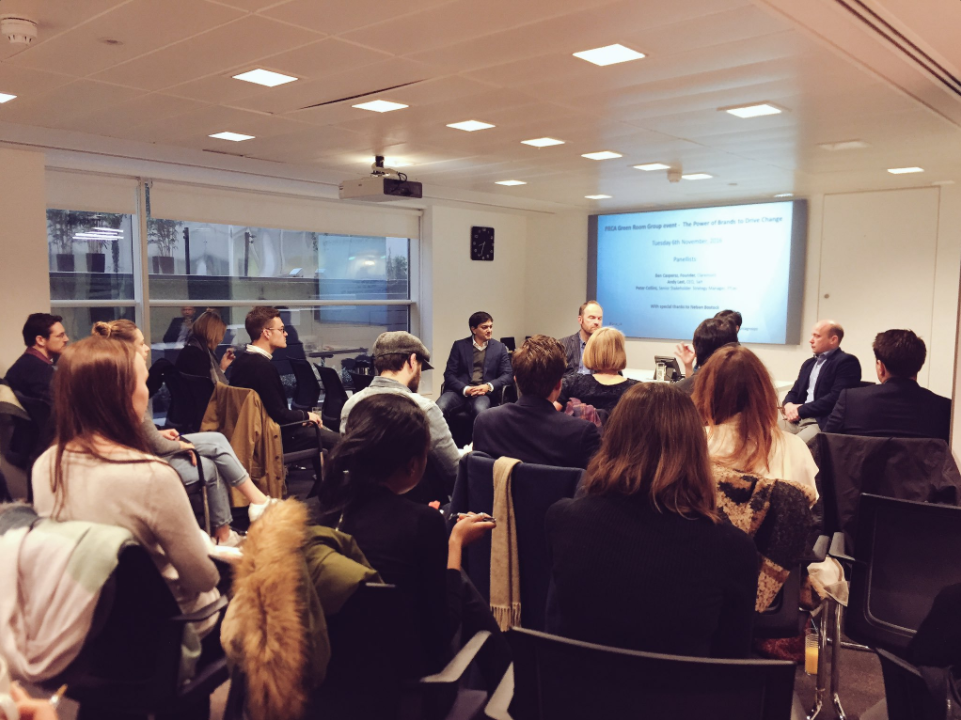We’re passionate about changing behaviours at onebite, and we love to share insights with our industry and collaborate on fresh ideas.
One recent rainy Wednesday morning I hopped on the train to London to join one of the PRCA’s fantastic green room discussion events. The topic was ‘The Power of Brands to Drive Change’, and the point of the session was to explore a brand’s ‘social purpose’ and how it can deliver positive change to its audience.

The morning began with Ben Caspersz, Founder and Managing Director of Claremont, who introduced the topic of behaviour change theory. Ben believes the future of a successful company lies in purpose-driven business and effecting behaviour change.
He highlighted to the group that brand awareness doesn’t always evoke behaviour change. An example of this was the Government’s well known ‘Five a day’ campaign, which – despite mass awareness of this initiative – didn’t achieve much success when it came to changing eating behaviours.

Ben then touched on methods that can in fact change behaviours. He introduced the ‘nudge’ technique, which pivots on the idea that it’s often easier to change environments than minds – at least for simple behaviours. This technique is widely used; have you noticed how supermarkets place children’s products on the lower shelves? A great example of this technique is found in the Google cafeteria, in which the layout of the available food gives simple nudges to healthy eating. More healthy options are much easier to access, and their unhealthy equivalents aren’t advertised as prominently. You can read more about it here.
Next to speak was Andy Last, CEO at Salt Communications, who continued the theme of a brand’s social purpose. He spoke about his work with Unilever, in partnership with Domestos. It was interesting to hear how a brand like Domestos has a huge positive social influence on global crises. One campaign focused on the importance of hygiene in rural parts of Africa, and encouraged local communities to re-think the placement of their toilets.

Part of the brand’s role was shaking off the taboo of the behaviour they wanted to change. It’s a bold move to start a large-scale discussion on such an often-avoided topic, but an essential one in order to tackle the desired changes in behaviour.
The third speaker was Peter Collins, Senior Stakeholder Strategy Manager at Pfizer. Peter introduced the group to his recent work with GP surgeries, aiming to reduce missed appointments. He talked us through some factors of the intervention that really helped to change patient behaviours. These included changing the script that receptionists use when confirming appointments. A line such as “can you definitely make that time and date?” was added which made the patient thoroughly consider committing to that timeslot. An additional step was to send an SMS to patients on the run up to the appointment to check if they could still make it. Peter explained that his team also educated the GPs and reception staff on the importance of the problem, by illustrating exactly how much time and money was being spent on missed appointments.
The session ended with a thought-provoking discussion on the benefits of purpose-driven brands, and how we can provoke positive behaviour change. The key take-away for me was that whilst there’s an intrinsic value in brands having a social purpose, this is now something that’s actively sought by consumers. People are increasingly looking to invest time and money in brands that align with their personal values, and this is something that should be at the top of every company’s agenda.
To share your insights on how brands can drive change, tweet us at @onebitecomms. For more information on how we can help your brand change behaviours, get in touch.




